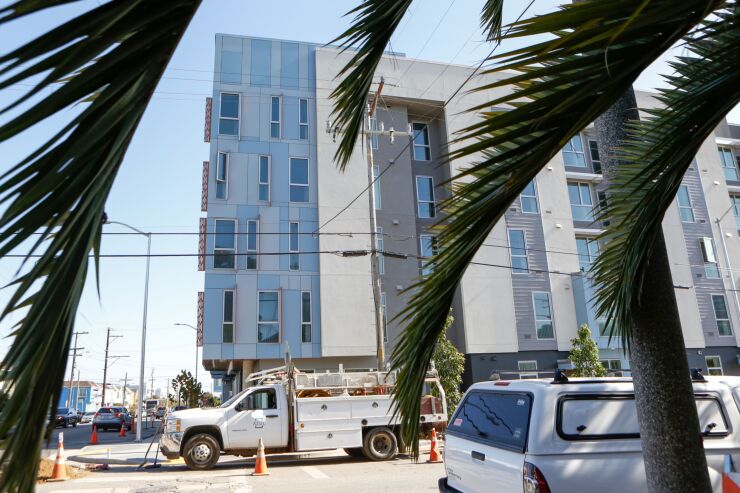A bipartisan group of lawmakers is proposing to boost U.S. affordable housing by 2 million units over the next decade by expanding a key tax credit as part of President Joe Biden’s agenda on jobs and the economy.
The
Supporters say the measures could significantly reduce a U.S. housing deficit that has grown to

DelBene, a Democrat from Washington, and Walorski, an Indiana Republican, want to make their bill the leading proposal as Congress weighs housing legislation beyond the confines of the $579 billion infrastructure deal struck between Biden and a
“We look forward to working with the administration to get that in the package,” DelBene said in an interview this week.
As part of his American Jobs Plan, Biden has called for $318 billion in
In contrast to the administration’s broad approach, the lawmakers’ proposal focuses on the low income housing tax credit, which has supported 90% of federally-funded affordable housing since its creation in 1986.
Its track record as a public-private partnership, a congressional aide said, makes the tax incentive the best available vehicle to rapidly expand affordable housing. A previous version of the bill drew broad bipartisan support in the last Congress.
Private-activity bonds
The biggest hoped-for boost would allow states to ramp up development by halving the share of costs that must be financed by private-activity bonds. Those bonds, which are primarily used for affordable housing, are oversubscribed in more than a dozen states according to Michael Novogradac, managing partner of Novogradac & Co.
The bond market has become hypercompetitive in places such as California, he said, where demand is
The bill would also expand the pool of money available for financing affordable housing by making permanent a 12.5% increase in tax-credit allocations to states approved in 2018, with a 50% increase on that number phased in over the next two years.
That’s an accelerated timeline compared to a 2019 version of the legislation, which phased in the increase over five years — a reflection of overlapping housing crises that have been exacerbated by the pandemic, the aide said.
Other provisions lawmakers want to work into the infrastructure deal include barring state agencies from letting local contributions or political support have an influence on project selection, DelBene said.
That measure aims to counteract local opposition, often known as NIMBYism, that often stall affordable housing development. The bill would also increase the size of subsidies available to projects for rural, tribal and extremely low-income renters, making more developments feasible in areas that often struggle to break ground on new projects.
Those boosts could be helpful in underserved markets, though they’re only part of a range of programs that have been historically underfunded, said Corianne Payton Scally, a researcher at the Urban Institute.
Biden’s American Jobs Plan would boost funding for some of those programs, including investment in rural areas and public housing. His initial plan also envisaged a new tax credit focused on homeownership and a $55 billion increase in the credit for low-income housing.
The tax credit “definitely deserves attention and is certainly a large part of the solution,” Scally said. “But I think it would be detrimental to not acknowledge that we do have a continuum of programs for a reason. They serve different purposes and they often work together to enable access to the families that need them the most.”





